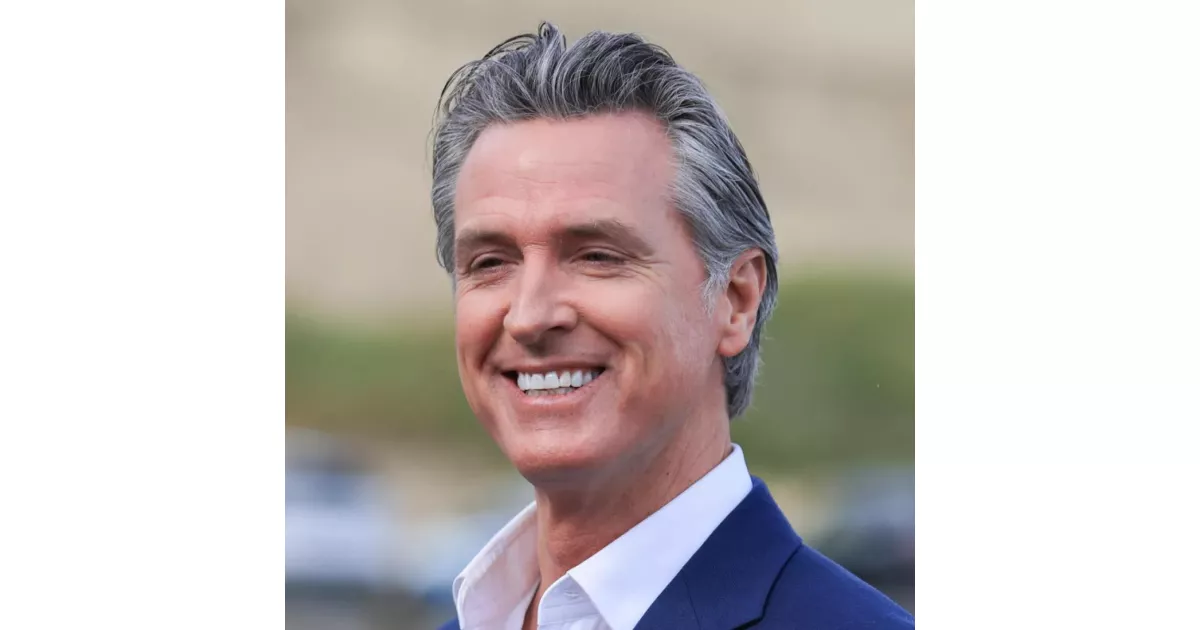Gavin Newsom is an American politician and businessman currently serving as the 40th governor of California since 2019. A Democrat, he previously served as the state's 49th Lieutenant Governor from 2011 to 2019. Prior to his statewide roles, Newsom was the 42nd mayor of San Francisco from 2004 to 2011. His political career has been marked by his leadership roles in both city and state government.
2 hours ago : Newsom supports age restrictions on social media citing parental experience and teen phone obsession.
Governor Gavin Newsom advocates for social media age restrictions, drawing from his experience as a parent and his daughter's phone usage. He emphasizes the need for assistance in managing teens' online access and safety.
October 10, 1967: Gavin Newsom Born
On October 10, 1967, Gavin Christopher Newsom was born in San Francisco, California. He is now a politician and businessman currently serving as the 40th governor of California.
1971: Parents' Divorce
In 1971, when Gavin Newsom was three years old, his parents divorced, leaving his mother, Tessa, to raise him and his younger sister.
1978: Execution Costs Cited
In 2012, Gavin Newsom cited statistics that California had spent $5 billion since 1978 to execute just 13 people when Gavin Newsom supported a failed measure in California that sought to end capital punishment in California.
1985: Graduated from Redwood High School
In 1985, Gavin Newsom graduated from Redwood High School in Larkspur, California, where he excelled athletically despite his academic struggles.
1985: Underwent Elbow Surgery
In late 1985, Gavin Newsom underwent elbow surgery, ending his aspirations to play varsity baseball at Santa Clara University.
1989: Graduated from Santa Clara University
In 1989, Gavin Newsom graduated from Santa Clara University with a Bachelor of Science in political science after receiving letters of recommendation from Jerry Brown.
May 14, 1991: Created PlumpJack Associates L.P.
On May 14, 1991, Gavin Newsom and a group of investors created the company PlumpJack Associates L.P.
1992: Started PlumpJack Winery
In 1992, Gavin Newsom and his associates started the PlumpJack Winery with financial assistance from Gordon Getty.
1993: Opened PlumpJack Cafe
In 1993, the PlumpJack Cafe opened on Fillmore Street.
1994: Opened PlumpJack Squaw Valley Inn
In 1994, Newsom and his investors opened the PlumpJack Squaw Valley Inn with a PlumpJack Café.
1995: Opened Winery in Napa Valley and Balboa Cafe Bar and Grill
In 1995, Gavin Newsom and his investors opened a winery in Napa Valley and the Balboa Café Bar and Grill.
1995: Volunteered for Willie Brown's Mayoral Campaign
In 1995, Gavin Newsom's first political experience came when he volunteered for Willie Brown's successful campaign for mayor and hosted a private fundraiser at his PlumpJack Café.
1996: Established PlumpJack Development Fund L.P.
In 1996, Gavin Newsom and his investors opened the PlumpJack Development Fund L.P.
1996: Appointed to Parking and Traffic Commission
In 1996, Gavin Newsom began his political career when San Francisco mayor Willie Brown appointed him to the city's Parking and Traffic Commission.
1997: Appointed to San Francisco Board of Supervisors
In 1997, Willie Brown appointed Gavin Newsom to the San Francisco Board of Supervisors seat vacated by Kevin Shelley.
1998: Opened MatrixFillmore Bar
In 1998, Gavin Newsom and his investors opened the MatrixFillmore Bar.
1998: Elected to Full Term on the Board
In 1998, Gavin Newsom was elected to a full four-year term to the Board of Supervisors.
1998: Elected to the Board of Supervisors
In 1998, Gavin Newsom was first elected to the Board of Supervisors in San Francisco.
1998: Endorsed by Rescue Muni
In his 1998 reelection campaign, Gavin Newsom was one of two supervisors endorsed by Rescue Muni, a transit riders group.
November 1999: Voters Approved Rescue Muni Ballot Measure
In November 1999, a version of a ballot measure from Rescue Muni, sponsored by Gavin Newsom, was approved by voters.
1999: Opened PlumpJack Wines Shop Noe Valley branch
In 1999, Gavin Newsom and his investors opened the PlumpJack Wines shop Noe Valley branch.
1999: San Francisco Changed to District System
In 1999, San Francisco voters chose to abandon at-large elections to the Board of Supervisors for the previous district system.
2000: Contribution to Republican Slate Mailer
During the 2003 mayoral race, Gavin Newsom was attacked for contributing $500 to a Republican slate mailer in 2000 that endorsed issues Newsom supported.
2000: Opened PlumpJackSport and Second Balboa Cafe
In 2000, Gavin Newsom and his investors opened PlumpJackSport retail clothing store and a second Balboa Café at Squaw Valley.
2000: State Law Passed
In 2000, Gavin Newsom violated the State law passed by directing the San Francisco city–county clerk to issue marriage licenses to same-sex couples.
2000: Reelected to Represent Second District
In 2000, Gavin Newsom was reelected to represent the second district, and also paid $500 to the San Francisco Republican Party to appear on the party's endorsement slate.
December 2001: Newsom Marries Kimberly Guilfoyle
In December 2001, Gavin Newsom married legal commentator Kimberly Guilfoyle at Saint Ignatius Catholic Church.
2001: Annual Income was Greater Than $429,000
From 1996 to 2001, Gavin Newsom's annual income was greater than $429,000.
May 2002: Newsom's Mother Dies from Physician-Assisted Suicide
In May 2002, Gavin Newsom's mother died from physician-assisted suicide after battling breast cancer, a choice she made when assisted suicide was not yet legal in California.
2002: Reelected as Supervisor
In 2002, Gavin Newsom was reelected to represent the second district as Supervisor.
2002: Business Holdings Valued at Over $6.9 Million
In 2002, Gavin Newsom's business holdings were valued at more than $6.9 million.
November 4, 2003: Placed First in General Election
On November 4, 2003, Gavin Newsom placed first in the general election, receiving 41.9% of the vote.
2003: Campaigning for Mayor
In 2003, Gavin Newsom was campaigning for Mayor where he supported building 10,000 new housing units to create 15,000 new construction jobs. The successfully passed ballot measure raised his political profile and provided the volunteers, donors, and campaign staff that helped make him a leading contender for mayor.
January 8, 2004: Newsom Sworn in as Mayor
On January 8, 2004, Gavin Newsom was sworn in as mayor of San Francisco. He called for unity among the city’s political factions and promised to address the issues of public schools, potholes, and affordable housing. Newsom positioned himself as a different kind of leader, unafraid to solve even the toughest problems.
July 1, 2004: Care Not Cash Initiative Implemented
On July 1, 2004, the implementation of Care Not Cash, the initiative sponsored by Gavin Newsom as a supervisor, began. As part of the initiative, 5,000 more homeless people were given permanent shelter in the city.
August 2004: Supreme Court Annulls Same-Sex Marriages
In August 2004, the Supreme Court of California annulled the marriages Gavin Newsom had authorized, as they conflicted with state law. Still, Newsom's unexpected move brought national attention to the issue of same-sex marriage, solidifying political support for him in San Francisco and in the LGBTQ+ community.
October 27, 2004: Newsom Joins Hotel Workers' Strike
On October 27, 2004, during a strike by hotel workers against a dozen San Francisco hotels, Gavin Newsom joined UNITE HERE union members on a picket line in front of the Westin St. Francis Hotel. Newsom vowed that the city would boycott the hotels by not sponsoring city events at them until they agreed to a contract with workers.
2004: Sold San Francisco Businesses
In 2004, Gavin Newsom sold his share of his San Francisco businesses when he became mayor.
January 2005: Newsom and Guilfoyle File for Divorce
In January 2005, Gavin Newsom and Kimberly Guilfoyle jointly filed for divorce, citing "difficulties due to their careers on opposite coasts".
2005: Newsom Pushes for State Law on Dog Breeds
In 2005, Gavin Newsom pushed for a state law to allow California communities to create policy restricting certain breeds of dogs.
February 2006: Purchased Residence in Russian Hill
In February 2006, Gavin Newsom paid $2,350,000 for his residence in the Russian Hill neighborhood.
February 28, 2006: Newsom and Guilfoyle's Divorce Finalized
On February 28, 2006, the divorce between Gavin Newsom and Kimberly Guilfoyle was finalized.
September 2006: Newsom Briefly Dates Brittanie Mountz
In September 2006, Gavin Newsom briefly dated 19-year-old Brittanie Mountz, a model and restaurant hostess.
September 2006: Hotel Contract Dispute Settled
In September 2006, the contract dispute between hotel workers and a dozen San Francisco hotels was settled, following Gavin Newsom's earlier vow to boycott the hotels until an agreement was reached.
October 2006: Newsom Begins Dating Jennifer Siebel
In October 2006, Gavin Newsom began dating film director Jennifer Siebel.
January 31, 2007: Alex Tourk Resigns After Affair Revelation
On January 31, 2007, Alex Tourk, Gavin Newsom's campaign manager and former chief of staff, resigned after learning that Newsom had an affair with Tourk's wife, Ruby Rippey-Tourk, in 2005.
February 2007: Newsom Seeks Treatment for Alcohol Use Disorder
In February 2007, Gavin Newsom announced that he would seek treatment for alcohol use disorder.
August 10, 2007: Filing Deadline Passes for Mayoral Election
On August 10, 2007, the filing deadline passed for candidates to run against Gavin Newsom in the San Francisco mayoral election. With Supervisors Ross Mirkarimi and Chris Daly, and Gonzalez declining to run, discussion shifted to Newsom's second term.
August 2007: Newsom Faces Little Threat in Re-election Bid
In August 2007, The San Francisco Chronicle reported that Gavin Newsom faced no "serious threat to his re-election bid". By early August, Newsom had raised $1.6 million for his reelection campaign.
December 2007: Newsom and Siebel Announce Engagement
In December 2007, Gavin Newsom and Jennifer Siebel announced their engagement.
2007: Homeless Placements
By 2007, as part of Gavin Newsom's Care Not Cash initiative, about 2,000 people had been placed into permanent housing with support. Other programs initiated by Newsom, such as the San Francisco Homeless Outreach Team (SF HOT) and Project Homeless Connect (PHC), had placed 2,000 homeless people into permanent housing and provided 5,000 additional affordable rental units in the city.
2007: Earned Between $141,000 and $251,000 From Business Interests
In 2007, Gavin Newsom earned between $141,000 and $251,000 from his business interests.
2007: Healthy San Francisco Established
In 2007, Gavin Newsom signed the law establishing Healthy San Francisco to provide city residents with universal health care, making San Francisco the first city in the nation to do so.
2007: Reelected Mayor of San Francisco
In 2007, Gavin Newsom was reelected as Mayor of San Francisco.
July 2008: Newsom Marries Jennifer Siebel
In July 2008, Gavin Newsom and Jennifer Siebel were married in Stevensville, Montana.
2008: Newsom Opposes Proposition 8
During the 2008 election, Gavin Newsom opposed Proposition 8, the ballot initiative to reverse the Supreme Court of California ruling that there was a constitutional right to same-sex marriage. Some observers noted that polls shifted in favor of Proposition 8 after a commercial featuring footage of Newsom saying the following in a speech regarding same-sex marriage: "This door's wide open now. It's going to happen, whether you like it or not."
2008: Leadership for Healthy Communities Award
In 2008, Gavin Newsom received the Leadership for Healthy Communities Award, along with Mayor Michael Bloomberg of New York City and three other public officials, for his commitment to making healthful food and physical activity options more accessible to children and families. He also hosted the Urban-Rural Roundtable to explore ways to promote regional food development and increased access to healthy, affordable food. He secured $8 million in federal and local funds for the Better Streets program and signed a menu-labeling bill into law.
2008: City Audit Evaluated Care Not Cash Program
In 2008, a city audit evaluated Gavin Newsom's Care Not Cash program as largely successful for lowering average cash payments per person from over $300 to $78 and the number of people receiving cash payments from over 2,500 to about 640.
April 2009: Listed Russian Hill Residence for Sale
In April 2009, Gavin Newsom put his residence in the Russian Hill neighborhood on the market for $3,000,000.
April 21, 2009: Newsom Announces Candidacy for Governor
On April 21, 2009, Gavin Newsom announced his candidacy for governor of California in the 2010 election.
2009: Newsom Attacked for Sanctuary City Rule
In 2009, Gavin Newsom came under attack from the San Francisco Democratic Party for his failure to implement the City of San Francisco's sanctuary city rule, under which the city was to not assist U.S. Immigration and Customs Enforcement.
February 2010: Newsom Files Paperwork for Lieutenant Governor Run
In February 2010, Gavin Newsom filed initial paperwork to run for lieutenant governor of California.
2010: Historical Context for Democratic Gubernatorial Vote Share
2022 was the first time since 2010 that the Democratic gubernatorial nominee did not win at least 60% of the vote.
2010: Newsom Runs for Governor
In 2010, Gavin Newsom ran for governor of California in the 2010 election. He dropped out of the race in October and ran for lieutenant governor instead.
2010: Elected Lieutenant Governor of California
In 2010, Gavin Newsom was elected Lieutenant Governor of California.
2010: "America's Most Social Mayor"
In 2010, Gavin Newsom was named "America's Most Social Mayor" by Same Point, based on analysis of the social media profiles of mayors of the 100 largest U.S. cities.
January 10, 2011: Newsom Sworn in as Lieutenant Governor
On January 10, 2011, Gavin Newsom was sworn in as lieutenant governor of California, serving under Governor Jerry Brown.
2011: Became Lieutenant Governor of California
In 2011, Gavin Newsom became the 49th Lieutenant Governor of California.
2011: Guilfoyle Gains Prominence on Fox News
In 2011, Kimberly Guilfoyle gained prominence through a Fox News chat show.
2011: The Representation Project launched
Since launching it in 2011, Jennifer Siebel Newsom received $2.3 million in salary from The Representation Project.
May 2012: Newsom Criticized for "Dull" Sacramento Comment
In May 2012, Gavin Newsom drew criticism for calling Sacramento "dull" and saying he was only there once a week, adding, "there's no reason" to be there otherwise. The same month, Gavin Newsom began hosting The Gavin Newsom Show on Current TV.
2012: Hosted The Gavin Newsom Show
From 2012, Gavin Newsom hosted "The Gavin Newsom Show".
2012: Newsom Supports Measure to End Capital Punishment
In 2012, Gavin Newsom supported a failed measure in California that sought to end capital punishment in California. Newsom said the initiative would save California millions of dollars, citing statistics that California had spent $5 billion since 1978 to execute just 13 people.
February 7, 2013: Citizenville Book Release
On February 7, 2013, Gavin Newsom released his first book, Citizenville: How to Take the Town Square Digital and Reinvent Government. The book discusses the Gov 2.0 movement taking place across the nation.
2013: Blue Ribbon Commission Convened
In 2013, Gavin Newsom convened the Blue Ribbon Commission on Marijuana Policy with the American Civil Liberties Union of California.
2013: Authored Citizenville
In 2013, Gavin Newsom wrote the book "Citizenville", which discusses using digital tools for democratic change.
November 4, 2014: Newsom Reelected as Lieutenant Governor
On November 4, 2014, Gavin Newsom was reelected as lieutenant governor of California, defeating Republican Ron Nehring with 57.2% of the vote.
2014: Reelected Lieutenant Governor of California
In 2014, Gavin Newsom was reelected as Lieutenant Governor of California.
2014: Memorandum of Understanding with Israel
In 2014, Newsom inked a memorandum of understanding between California and Israel.
January 5, 2015: Newsom's Second Term as Lieutenant Governor Begins
On January 5, 2015, Gavin Newsom's second term as lieutenant governor of California began.
February 11, 2015: Newsom Opens Campaign Account for Governor
On February 11, 2015, Gavin Newsom announced that he was opening a campaign account for governor in the 2018 elections, allowing him to raise funds for a campaign to succeed Brown as governor of California.
July 2015: Blue Ribbon Commission Report Released
In July 2015, Gavin Newsom released the Blue Ribbon Commission on Marijuana Policy's final report, which he had convened with the American Civil Liberties Union of California in 2013. The report's recommendations to regulate cannabis were intended to inform a legalization measure on the November 2016 ballot.
November 2015: California College Promise
In November 2015, Gavin Newsom joined Long Beach City College Superintendent Eloy Oakley in an op-ed calling for the creation of the California College Promise, which would create partnerships between public schools, public universities, and employers and offer a free community college education.
December 2015: Newsom Calls for Reclassification of Computer Science Courses
In December 2015, Gavin Newsom called on the University of California to reclassify computer science courses as a core academic class to incentivize more high schools to offer computer science curricula.
2015: Partnership to Launch Digital Democracy
In 2015, Gavin Newsom partnered with the Institute for Advanced Technology and Public Policy at California Polytechnic State University to launch Digital Democracy, an online tool that uses facial and voice recognition to enable users to navigate California legislative proceedings.
June 2016: $15 Million Secured
In June 2016, Gavin Newsom helped secure $15 million in the state budget to support the creation of promise programs throughout the state.
September 2016: Legislation Signed to Expand Computer Science Education
In September 2016, legislation sponsored by Gavin Newsom was signed by Governor Brown that began the planning process for expanding computer science education to all state students, beginning as early as kindergarten.
November 2016: Proposition 64 Legalizes Cannabis
In November 2016, Gavin Newsom supported Proposition 64, which legalized cannabis use and cultivation for California state residents who are 21 or older.
2016: Voters Rejected Death Penalty Repeal
In 2016, California Proposition 62, which would have repealed the death penalty, was narrowly rejected by voters, three years before Newsom declared a moratorium on the state's death penalty.
2016: Voters Agreed to Move Condemned to Other Prisons
In 2016, California voters agreed to move the condemned to other prisons, a move that later influenced Newsom's decision to dismantle death row.
2016: Newsom Supports Proposition 62
In 2016, Gavin Newsom supported Proposition 62, which would have repealed the death penalty in California. He argued that Prop. 62 would get rid of a system "that is administered with troubling racial disparities" and said that the death penalty was fundamentally immoral and did not deter crime. Proposition 62 failed.
2016: Proposition 63 Proponent
In 2016, as lieutenant governor, Gavin Newsom was the official proponent of Proposition 63, which required background checks and California Department of Justice authorization to purchase ammunition.
February 24, 2017: Newsom Urges Against Increased Federal Enforcement on Cannabis
On February 24, 2017, in response to pro-enforcement statements by White House Press Secretary Sean Spicer, Gavin Newsom sent Attorney General Jeff Sessions and President Donald Trump a letter urging them not to increase federal enforcement against recreational cannabis firms opening in California.
June 5, 2018: Newsom Finishes in Top Two
On June 5, 2018, Gavin Newsom finished in the top two in the nonpartisan blanket primary.
2018: Pledge to Tighten Fracking Oversight
During his 2018 campaign, Gavin Newsom pledged to tighten state oversight of fracking and oil extraction.
2018: Prior Election Victory
In 2018, Gavin Newsom won his first election as governor.
2018: Paradise Fire
In 2018, the town of Paradise was destroyed by fire, where at least eight evacuees burned to death in their vehicles.
2018: Expedited Pardons for Immigrants
Per a 2018 California law, pardon requests from people facing deportation are given expedited review by the state Board of Parole Hearings.
January 7, 2019: Newsom Sworn In
On January 7, 2019, Gavin Newsom was officially sworn in as governor of California.
January 2019: Threat to Withhold Infrastructure Funding and Lawsuit Against Huntington Beach
In late January 2019, during his first week in office, Gavin Newsom threatened to withhold state funding for infrastructure to communities that failed to take actions to alleviate California's housing shortage. He also announced that he would sue Huntington Beach for preventing the construction of affordable housing.
February 2019: State of the State Address on Central Valley Rail
In his February 2019 State of the State address, Gavin Newsom announced that work would continue on the 171-mile Central Valley segment of the high-speed rail project, but the rest of the system would be indefinitely postponed due to cost overruns and delays.
March 13, 2019: Moratorium on Death Penalty
On March 13, 2019, Gavin Newsom declared a moratorium on the death penalty in California, halting executions and closing the execution chamber at San Quentin State Prison.
May 2019: Newsom Purchases Expensive Home in Fair Oaks
In May 2019, The Sacramento Bee reported that Gavin Newsom's $3.7 million purchase of a 12,000-square-foot home in Fair Oaks was the most expensive private residence sold in the Sacramento region since the beginning of the year.
May 2019: First Clemency Acts
In May 2019, as part of his first acts of clemency, Gavin Newsom pardoned seven formerly incarcerated people, including two Cambodian refugees facing deportation.
June 2019: Apology for Genocide of Native Americans
In June 2019, Gavin Newsom apologized to Native Americans for the genocide approved and abetted by the California state government in the 19th century.
June 2019: Expansion of Medi-Cal Eligibility
In June 2019, the budget passed expanded eligibility for Medi-Cal from solely undocumented minor children to undocumented young adults from ages 19 to 25.
August 2019: Apology to Jewish Community
In August 2019, Gavin Newsom unconditionally apologized to California's Jewish community for a controversial ethnic studies draft curriculum.
September 2019: Newsom Vetoes SB 1
In September 2019, Gavin Newsom vetoed SB 1, a bill that would have preserved environmental protections at the state level, set to be rolled back nationally under the Trump administration's environmental policy.
November 2019: Moratorium on Fracking Approvals
In November 2019, Gavin Newsom imposed a moratorium on approval of new hydraulic fracturing and steam-injected oil drilling in the state until permits could be reviewed.
November 2019: Pardons for Avoidance of Deportation
In November 2019, Gavin Newsom pardoned three men who were attempting to avoid being deported to Cambodia or Vietnam.
December 2019: Parole Granted to Cambodian Refugee
In December 2019, Gavin Newsom granted parole to a Cambodian refugee who had been held in a California prison due to a murder case, but the refugee was turned over for possible deportation upon release.
2019: Veto rate
From 2019 to 2021, Newsom vetoed 12.7% of the bills the legislature passed on average.
2019: UN Climate Action Summit
In 2019, Gavin Newsom attended the UN Climate Action Summit, where he spoke of California as a climate leader.
2019: Signing of California Assembly Bill 5
In 2019, Gavin Newsom signed California Assembly Bill 5.
2019: Amendment to End of Life Option Act
In 2019, Gavin Newsom signed an amendment to the California End of Life Option Act that reduced the waiting period for physician-assisted suicide from 15 days to 48 hours and eliminated a requirement for a formal written declaration of intent.
2019: Newsom Allocates Funds to Combat Antisemitism
In 2019, Gavin Newsom took steps to combat antisemitism by allocating $15 million for synagogue security, $6 million for the Holocaust Museum LA, and $23.5 million for Jewish summer camps affected by wildfires.
2019: CalMatters Analysis of Newsom's Political Positions
In 2019, a CalMatters analysis indicated that Gavin Newsom's political positions were more moderate compared to almost every Democratic state legislator in California.
2019: Response to Virginia Beach Shooting
In 2019, in response to the mass shooting in Virginia Beach, Gavin Newsom called for nationwide background checks on people purchasing ammunition and also responded to the Gilroy Garlic Festival shooting.
2019: Reflected on Studying Abroad in Rome
In a 2019 speech, Gavin Newsom reflected on his semester studying abroad in Rome, Italy, during his junior year, calling it "eye-opening."
January 2020: False claims on wildfire prevention
In January 2020, Gavin Newsom and Cal Fire falsely claimed that 90,000 acres (36,000 ha) of land at risk for wildfires had been treated with fuel breaks and prescribed burns; the actual treated area was 11,399 acres (4,613 ha), an overstatement of 690%.
February 2020: Newsom Administration Sues Federal Agencies
In February 2020, the Newsom administration sued federal agencies over rollbacks to protect imperiled fish in the Sacramento–San Joaquin River Delta in 2019.
February 21, 2020: Recall Petition Introduced
On February 21, 2020, a recall petition against Gavin Newsom was introduced by Orrin Heatlie, citing grievances such as Newsom's sanctuary state policy and issues related to homelessness and taxes.
March 4, 2020: State of Emergency Declared for COVID-19
On March 4, 2020, Gavin Newsom declared a state of emergency in California following the first death attributable to COVID-19, aiming to prepare for and contain the virus's spread and prioritize mitigation policies for the homeless population.
March 22, 2020: State of Emergency Declared for Wildfires
On March 22, 2020, Gavin Newsom declared a state of emergency due to a mass die-off of trees throughout California, increasing the risk of wildfires in preparation for the 2020 wildfire season.
April 2020: Resumption of Hydraulic Fracturing Permits
In April 2020, state agencies resumed issuing new hydraulic fracturing permits after a moratorium.
June 10, 2020: Recall Petition Approved for Circulation
On June 10, 2020, the California secretary of state approved the recall petition against Gavin Newsom for circulation, allowing petitioners to begin gathering the necessary signatures.
August 2020: Recall Signature Verification
By August 2020, 55,000 signatures for the recall petition against Newsom had been submitted and verified by the secretary of state.
August 2020: Address to the Democratic National Convention
In August 2020, Gavin Newsom addressed the 2020 Democratic National Convention, mentioning climate change and the wildfires in California at the time.
September 2020: Approval Rating of 64%
In September 2020, Gavin Newsom had an approval rating of 64%.
September 23, 2020: Executive Order on Zero-Emission Vehicles
On September 23, 2020, Gavin Newsom signed an executive order to phase out sales of gasoline-powered vehicles and require all new passenger vehicles sold in the state to be zero-emission by 2035.
October 2020: Recall Signature Submission
By October 2020, an additional 890 valid signatures were submitted for the recall petition against Gavin Newsom.
November 2020: The French Laundry Controversy
In November 2020, Newsom attended a party at The French Laundry restaurant despite public health measures, contributing to growing support for the recall effort. Between November 5 and December 7 over 442,000 new signatures were submitted and verified.
November 17, 2020: Initial Deadline for Recall Signatures
November 17, 2020, was the initial deadline for the recall petition signatures; however, it was later extended due to the pandemic.
2020: Comparison to Presidential Election Overturn Attempts
During the 2020 recall campaign, Gavin Newsom likened the recall effort to attempts to overturn the 2020 United States presidential election.
2020: Signed Justice Acts
In 2020, Newsom signed the California Act to Save Lives and California Racial Justice Act of 2020.
2020: Homelessness as Top Priority
In 2020, a poll found that California voters thought the most important issue for Newsom and the state legislature to work on was homelessness.
2020: Appointments Following Harris's Election
In 2020, after Kamala Harris was elected vice president, Gavin Newsom appointed Alex Padilla as California's U.S. Senator and Shirley Weber as Secretary of State.
2020: Enactment of Stringent Pandemic Restrictions
In 2020, the Newsom administration enacted some of the country's most stringent pandemic restrictions.
2020: Executive orders
Newsom used a larger than normal number of executive orders during the 2020 legislative session.
January 2021: Low Vaccination Rates
By January 2021, California had one of the lowest COVID-19 vaccination rates in the country, having used only about 30% of its available vaccines.
January 2021: Unemployment Benefit Mismanagement
In January 2021, it was reported that Newsom's administration had mismanaged $11.4 billion in unemployment benefits, disbursing funds to ineligible claimants, with another $19 billion under investigation for fraud.
February 2021: Approval Rating Decline
A February 2021 poll found Gavin Newsom's approval rate had dropped to 46%, with a 48% disapproval rate, attributed to public opinion of his management of the COVID-19 pandemic.
February 2021: Julie Su Appointed Deputy Secretary of Labor
In February 2021, California Labor Secretary Julie Su, a Newsom appointee who oversaw the state's unemployment system, was appointed as deputy secretary of labor by President Joe Biden.
March 17, 2021: Extended Deadline for Recall Signatures
March 17, 2021, marked the extended deadline for submitting signatures for the recall petition against Newsom, with over 1.6 million verified signatures submitted between November 2020 and this date.
April 2021: Commitment to End Gas Lease Sales
In April 2021, Gavin Newsom committed to ending the sale of gas leases by 2024 and ending oil extraction by 2045.
May 2021: COVID-19 Death Rate Ranking
By May 2021, despite stringent pandemic restrictions, California had the 29th-highest COVID-19 death rate among the 50 states.
June 10, 2021: Response to Judge Benitez's Ruling
On June 10, 2021, Gavin Newsom criticized federal Judge Roger Benitez after Benitez struck down California's statewide ban on assault weapons. Newsom also proposed legislation to empower private citizens to enforce the ban.
June 23, 2021: CapRadio Report on Wildfire Treatment Claims
On June 23, 2021, CapRadio reported that Gavin Newsom and Cal Fire had falsely claimed that 90,000 acres of land at risk for wildfires had been treated. The actual treated area was much smaller, and leaked emails showed Newsom's Cal Fire chief ordered the removal of the original statement.
September 14, 2021: Recall Election
On September 14, 2021, the recall election was held, and Gavin Newsom remained in office as only 38% of voters supported the recall.
September 2021: Improved Vaccination Rates
By September 2021, over half of California's population was fully vaccinated against COVID-19, ranking #16 among the 50 states.
September 2021: Legislation to Reform Policing
In September 2021, Gavin Newsom signed legislation raising the minimum age to become a police officer from 18 to 21, as well as implementing restrictions on tear gas and banning the employment of officers after misconduct or crimes.
October 2021: Proposed Buffer Zone for Fossil Fuel Extraction
In October 2021, Gavin Newsom proposed a 3,200-foot (980 m) buffer between new fossil fuel extraction sites and densely populated areas.
December 2021: Abortion Sanctuary Plan
In December 2021, Gavin Newsom announced his intention to make California a "sanctuary" for abortion, potentially paying for procedures, travel, and lodging for out-of-state abortion seekers.
2021: Declining Support for Capital Punishment
A 2021 poll suggested declining support for capital punishment among California voters.
2021: Unemployment Benefit Debt
By the summer of 2021, California owed $23 billion to the federal government for unemployment benefits paid out during the pandemic, which was 43% of all unemployment debt owed by 13 states to the federal government.
2021: Veto rate
From 2019 to 2021, Newsom vetoed 12.7% of the bills the legislature passed on average.
2021: Ballmer's donation to Newsom campaign
In 2021, Connie Ballmer donated $1 million to the Newsom campaign.
2021: Faced Recall Effort
In 2021, Gavin Newsom faced criticism for his behavior and leadership during the COVID-19 pandemic, leading to an unsuccessful recall effort.
2021: Zoning Regulation Bills Signed
In 2021, Gavin Newsom signed a pair of bills into law that made zoning regulations for housing less restrictive, allowing construction of duplexes and fourplexes in lots that were previously zoned exclusively for single-family homes. Newsom also signed a bill which expedites the environmental review process for new multifamily developments worth at least $15,000,000.
2021: Expansion of Medi-Cal Eligibility to Residents Over 50
In 2021, Gavin Newsom signed legislation expanding Medi-Cal eligibility to undocumented residents over age 50.
2021: Newsom defends wife's nonprofit donations
In 2021, Governor Newsom said that he saw no conflict in his wife's nonprofit, The Representation Project, accepting donations from companies that lobby his administration.
January 13, 2022: Denial of Parole for Sirhan Sirhan
On January 13, 2022, Gavin Newsom denied parole to Sirhan Sirhan, Robert F. Kennedy's assassin, citing Sirhan's lack of insight and refusal to accept responsibility for his actions, despite the parole board's recommendation.
January 2022: Dismantling Death Row
In January 2022, Gavin Newsom directed California to begin dismantling its death row in San Quentin, converting it into a "space for rehabilitation programs," with inmates moved to other maximum-security prisons.
March 2022: Bill on Abortion Coverage
In March 2022, Gavin Newsom signed a bill requiring private health insurance plans in California to fully cover abortion procedures by eliminating co-pays and deductibles.
April 2022: CapRadio Report on Environmental Reviews
In April 2022, CapRadio found a program, hailed in 2020 by the Newsom administration to fast-track environmental reviews on high-priority fire prevention projects, had failed to make progress.
June 30, 2022: Signing of $307.9 Billion State Budget
On June 30, 2022, Gavin Newsom signed a $307.9 billion state budget that pledged to make all low-income adults eligible for the state's Medicaid program by 2024, regardless of their immigration status. This action would make California the first U.S. state to guarantee healthcare to all low-income undocumented immigrants, at a cost of $2.7 billion per year.
July 6, 2022: Signing of Senate Bill 184
On July 6, 2022, Gavin Newsom signed Senate Bill 184, which established the Office of Health Care Affordability. The goal of the office is to develop data-informed policies and enforceable cost targets to contain health care costs.
August 2022: Veto of Senate Bill 57
In August 2022, Gavin Newsom vetoed Senate Bill 57, which sought to authorize jurisdictions to approve supervised injection sites.
September 2022: Proposed Windfall Profits Tax on Oil Companies
In September 2022, Gavin Newsom proposed a windfall profits tax and penalty for oil companies due to high gas prices exceeding $6 per gallon.
September 2022: Signing of Senate Bill 107
In September 2022, Gavin Newsom signed Senate Bill 107 into law, making California the first sanctuary state for transgender youth.
2022: Opposition to NIMBYism
In 2022, Gavin Newsom opposed NIMBY (not-in-my-back-yard) sentiment, declaring that "NIMBYism is destroying the state".
2022: Signing of 39 Housing Bills
In 2022, Gavin Newsom signed 39 bills into law intended to address California's housing crisis, including measures to eliminate minimum parking requirements near transit and allow housing on commercial lots.
2022: Signing California FAST Recovery Act
In 2022, Gavin Newsom signed the California FAST Recovery Act.
2022: Newsom Re-elected
In 2022, Gavin Newsom was elected to a second term as governor, defeating Republican Brian Dahle with 59.2% of the vote.
2022: Reelected Governor of California
In 2022, Gavin Newsom was reelected as the governor of California.
2022: Gun control bills signed
In 2022, Newsom signed gun control bills passed by the California Legislature, including Assembly Bill 1621, which restricts privately made firearms, and Assembly Bill 2571, which prohibited the marketing of firearms such as the JR-15 to children. On July 22, Newsom signed Senate Bill 1327, a law enabling private citizens to sue anyone who imports, distributes, manufactures or sells illegal firearms in California.
2022: Criticism for Walking Back on Universal Health Care Support
In early 2022, Gavin Newsom faced criticism for allegedly retracting his support for universal health care and for not backing CalCare (Assembly Bill 1400). Critics posited that business interests, having donated significantly to Newsom and his party, influenced his stance.
January 2023: Record Number of Homeless in California
In January 2023, the number of homeless people in California reached a record 181,000.
February 2023: Reproductive Freedom Alliance
In February 2023, Gavin Newsom organized the Reproductive Freedom Alliance of state governors supportive of abortion and reproductive rights.
March 2023: Walgreens Abortion Pill Decision
After Walgreens announced in March 2023 that it would refuse to dispense abortion pills in certain states, Gavin Newsom stated California would cease doing business with Walgreens and explored options for severing ties, including cancelling a $54 million contract with the state prison system and impacting $1.5 billion for filling prescriptions through Medi-Cal.
March 28, 2023: Law signed to Penalize Oil Companies
On March 28, 2023, Gavin Newsom signed a law authorizing the California Energy Commission to set a profit threshold and penalize oil companies exceeding it, while also creating a new oversight division to investigate price gouging in the gasoline industry.
April 2023: The Hill Article Discusses Newsom's Inevitable Presidential Run
In April 2023, an article in The Hill by Sharon Udasin discussed the perceived inevitability of a Gavin Newsom presidential run.
April 25, 2023: Newsom Endorses Biden's Reelection
On April 25, 2023, Gavin Newsom endorsed Joe Biden's reelection campaign, indicating he would not challenge Biden in the 2024 Democratic Party presidential primaries.
May 2023: Schwarzenegger Comments on Newsom's Future Presidential Run
In May 2023, Arnold Schwarzenegger stated that it was a "no-brainer" that Gavin Newsom would someday run for president.
June 8, 2023: Proposed 28th Amendment
On June 8, 2023, Gavin Newsom proposed a 28th amendment to the U.S. Constitution to raise the age to buy firearms to 21, institute universal background checks, mandate waiting periods, and ban assault weapons for civilians. The proposal was met with criticism from law professor Erwin Chemerinsky.
June 2023: Pride Month Proclamation and Actions
In June 2023, Gavin Newsom issued an official state proclamation for Pride Month, fined a school district $1.5 million for rejecting a curriculum that included a biography of gay rights leader Harvey Milk, and signed a bill prohibiting schools from banning textbooks based on LGBT references.
June 2023: NewsNation Poll on Newsom's Presidential Potential
In June 2023, a NewsNation poll indicated that 22% of California voters desired Gavin Newsom to enter the 2024 U.S. presidential election.
September 2023: Appointment of Laphonza Butler
In September 2023, following the death of Dianne Feinstein, Gavin Newsom appointed Laphonza Butler to the U.S. Senate, fulfilling his promise to appoint a Black woman to the seat.
October 2023: Trip to China
In October 2023, Gavin Newsom undertook a week-long trip to China, including discussions on climate change, trade relations, and fentanyl production with President Xi Jinping.
October 2023: Veto of Assembly Bill 1248
In October 2023, Gavin Newsom vetoed Assembly Bill 1248, which sought to require independent redistricting.
October 2023: Veto of Bill to Cap Insulin Co-pays
In October 2023, Gavin Newsom vetoed a bill that would have capped co-pays for insulin at $35.
October 2023: Veto of Bill to Ban Caste Discrimination
In October 2023, Gavin Newsom vetoed a bill to ban discrimination based on caste, deeming it unnecessary because existing California law already prohibits discrimination based on various characteristics.
October 2023: Veto of Bill on Unemployment Insurance for Striking Workers
In October 2023, Gavin Newsom vetoed a bill to provide unemployment insurance to striking workers, citing excess burden on the state's unemployment system.
October 2023: Veto of Housing Assistance Bills
In October 2023, Gavin Newsom vetoed several bills aimed at expanding access to housing assistance, including the California Social Housing Act and measures repurposing unused state-owned land and expanding eligibility for state housing aid.
October 20, 2023: Visit to Israel During Gaza War
On October 20, 2023, Gavin Newsom visited Israel to express solidarity during the Gaza war, meeting with Israeli leaders and survivors of the October 7 attacks.
November 2023: Newsom and DeSantis Debate on Fox News
In November 2023, Gavin Newsom and Florida Governor Ron DeSantis engaged in a debate moderated by Sean Hannity on Fox News, following their previous exchanges regarding DeSantis's policies.
2023: Discussed Dyslexia in Interview
In a 2023 interview, Gavin Newsom discussed his dyslexia, stating that it "forced me to find workarounds and think differently."
February 2024: Panera Bread Exemption Controversy
In February 2024, it was reported that Newsom pushed for an exemption for businesses that bake and sell bread, including 24 Panera Bread bakery-cafes owned by Greg Flynn, a businessman who donated to Newsom's campaigns, in AB 1228, a bill that raises the state's minimum wage for fast food workers. Republican lawmakers called for an investigation into the unusual exemption.
July 2024: Campaign for Democracy Raises $24 Million
As of July 2024, Gavin Newsom's Campaign for Democracy PAC raised $24 million for direct contributions to candidates and other spending, operating without contribution limits and able to coordinate with Newsom while he is not a candidate for federal office.
July 2024: Newsom Launches Politickin' Podcast
In July 2024, Gavin Newsom launched a podcast called Politickin', co-hosted by Marshawn Lynch and Doug Hendrickson. Also that month, after Biden's withdrawal from the presidential race, Newsom endorsed Vice President Kamala Harris for president and said he wouldn't seek the Democratic nomination.
July 2024: Signing of SAFETY Act
In July 2024, Gavin Newsom signed the "SAFETY Act", which prohibits schools from outing students' gender identity to their parents without the students' consent. Newsom vetoed several bills regarding gender identity issues.
August 2024: Warning to Counties Regarding Homeless Encampments
In August 2024, Gavin Newsom warned counties that did not remove their homeless encampments that their state funding would be cut off the next year.
September 2024: Veto of Assembly Bill 2724
In September 2024, Gavin Newsom vetoed Assembly Bill 2724, which sought to require schools to ensure students receive information on how to pre-register to vote.
September 2024: Intuit Dome Exception
In September 2024, the Los Angeles Times reported that Newsom signed AB 3206 into law, carving out an exception to the state's last call alcohol law for one specific venue, Intuit Dome, owned by former Microsoft CEO Steve Ballmer.
October 2024: Signing of California Racial Mascots Act
In October 2024, Gavin Newsom signed AB 3074, the "California Racial Mascots Act", which prohibits K-12 schools not run by recognized Native American tribes from using "derogatory" names or mascots.
October 2024: Veto of Assembly Bill 2693
In October 2024, Gavin Newsom vetoed Assembly Bill 2693, which aimed to modify the statute of limitations for those sexually abused in juvenile facilities.
December 2024: Newsom Criticizes Biden's Pardon of Hunter Biden
In December 2024, Gavin Newsom publicly criticized President Joe Biden for pardoning his son, Hunter Biden, stating that he was "disappointed and can't support the decision."
2024: Ending sale of gas leases
By 2024, Gavin Newsom committed to ending the sale of gas leases.
2024: Veto of SB 1299
In 2024, Gavin Newsom vetoed SB 1299, which would have required workers' comp judges to presume farmworkers who claim heat illness developed it at work. Newsom also vetoed legislation seeking to extend unemployment benefits to undocumented workers.
2024: Planned Expansion of Medicaid Program
In 2024, the state budget pledges to make all low-income adults eligible for the state's Medicaid program by 2024 regardless of their immigration status.
2024: Feinstein's Term End
Newsom was asked if he would appoint a Black woman to replace Dianne Feinstein if she were to retire or die before her term ended in 2024.
April 2025: Newsom's comment on deportation
In April 2025, Newsom called the illegal deportation of Kilmar Abrego Garcia to El Salvador "the distraction of the day" set up by the Trump administration, drawing criticism from U.S. Senator Chris Van Hollen.
June 2025: Newsom signed California Assembly Bill 130 (2025) into law
In June 2025, Gavin Newsom signed California Assembly Bill 130 (2025) into law.
June 2025: Protests and Federal Intervention in Los Angeles
In June 2025, protests broke out in Los Angeles after federal immigration raids, leading President Trump to deploy National Guard troops and U.S. Marines. Newsom objected and on June 9, 2025, California, led by Newsom, filed a federal lawsuit, Newsom v. Trump, challenging the legality of the troop deployment.
July 2025: Newsom Reflects on Political Stance
In July 2025, while visiting South Carolina, Gavin Newsom stated that while his views align with his party, he often took independent positions and that he was once considered "the conservative mayor" of San Francisco.
August 2025: Newsom Mocks Trump's Communication Style on Social Media
In August 2025, Gavin Newsom began utilizing social media platforms in a manner intended to mock the communication style of Donald Trump.
August 2025: Legislative Approval of California Proposition 50
In August 2025, Gavin Newsom secured legislative approval of California Proposition 50, a state constitutional amendment to allow congressional redistricting.
September 2025: Veto of Assembly Bill 1840
In September 2025, Gavin Newsom vetoed Assembly Bill 1840 which sought to prohibit the disqualification of applicants to California Housing Finance Agency home purchase assistance programs based solely on their immigration status.
October 2025: Newsom vetoed Senate Bill 682 and Assembly Bill 93
In October 2025, Newsom vetoed Senate Bill 682 which sought to limit forever chemicals and Assembly Bill 93 which sought to require data centers to report their water use.
2025: Launched Podcast and Oversee Passage of Proposition 50
In 2025, Gavin Newsom began hosting a podcast called "This Is Gavin Newsom" featuring guests from across the political spectrum. Also in 2025, he oversaw the passage of California Proposition 50, also known as the Election Rigging Response Act, to amend the State Constitution.
2025: Restriction of Medi-Cal Enrollment & Signing of Senate Bill 41
In 2025, Gavin Newsom signed a budget that restricted new enrollment of undocumented immigrants in Medi-Cal. Gavin Newsom also signed the California Senate Bill 41 (2025) but vetoed other measures to regulate pharmacy benefit managers.
2025: Elimination of Sunset Clause in End of Life Option Act
In 2025, Gavin Newsom signed another amendment that eliminated a sunset clause in the California End of Life Option Act, making assisted suicide legal in California indefinitely.
2025: Veto of Senate Bill 274
In 2025, Gavin Newsom vetoed Senate Bill 274, which proposed expanding regulations on law enforcement agencies' use of automated license plate readers, citing concerns that the regulations could hinder police work.
January 2026: Speech at World Economic Forum in Davos
In January 2026, Gavin Newsom spoke at the World Economic Forum in Davos, touting California's purchase of 2.5 million zero-emission electric vehicles and its resistance to the Trump administration's anti-clean energy agenda.
2035: Zero-Emission Vehicle Mandate
By 2035, according to an executive order signed by Gavin Newsom, all new passenger vehicles sold in California must be zero-emission.
2045: Ending oil extraction
By 2045, Gavin Newsom committed to ending oil extraction.
Mentioned in this timeline

Basketball is a team sport played on a rectangular court...

Donald John Trump is an American politician media personality and...
Fox News Channel FNC is a conservative American news and...
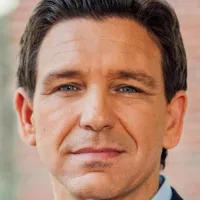
Ron DeSantis is an American politician who has served as...
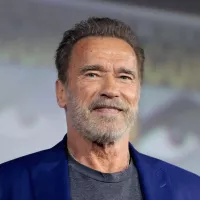
Arnold Schwarzenegger is an Austrian-American actor businessman former politician and...

Benjamin Bibi Netanyahu is a prominent Israeli politician and diplomat...
Trending

59 minutes ago Priyanka Chopra stuns in Dior and Gaurav Gupta at 'The Bluff' premiere.
59 minutes ago Puerto Vallarta: Vehicle Fires and Roadblocks Disrupt Sunday Morning
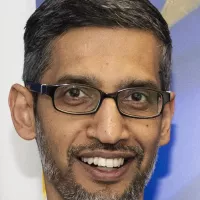
60 minutes ago Sundar Pichai envisions AI's transformative potential, focusing on India and global connectivity.

60 minutes ago Rhys Hoskins Reportedly Set to Join Cleveland Guardians After Phillies Departure.

1 hour ago Tate McRae stuns in Victoria's Secret dress, linked to Jack Hughes.
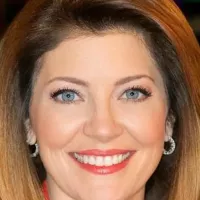
1 hour ago Norah O'Donnell highlights unsung heroines in "We the Women" and celebrates Women's History.
Popular

Jesse Jackson is an American civil rights activist politician and...

Barack Obama the th U S President - was the...

Bernie Sanders is a prominent American politician currently serving as...

Ken Paxton is an American politician and lawyer serving as...

Michael Joseph Jackson the King of Pop was a highly...
WWE Raw a professional wrestling television program by WWE airs...
